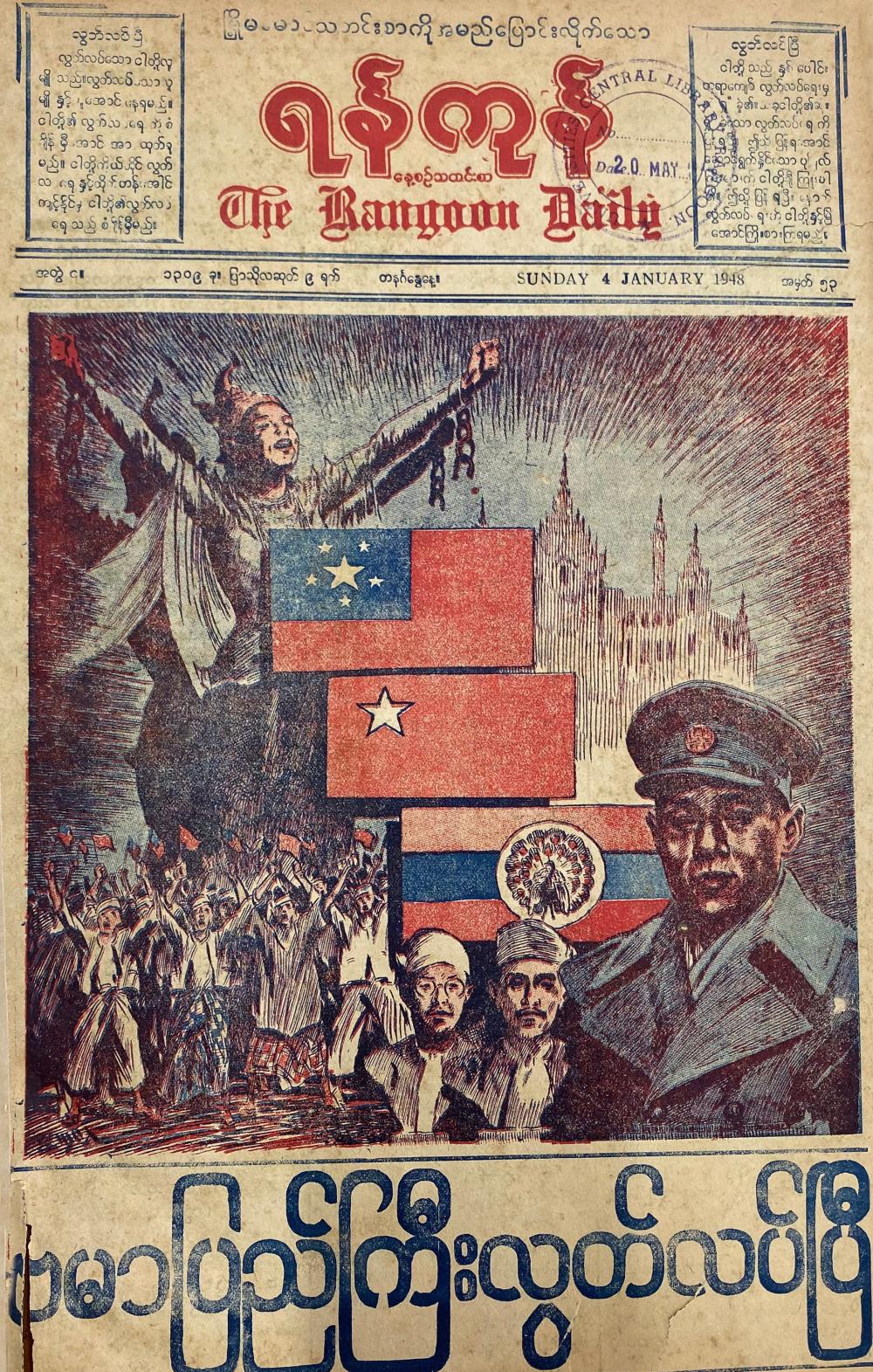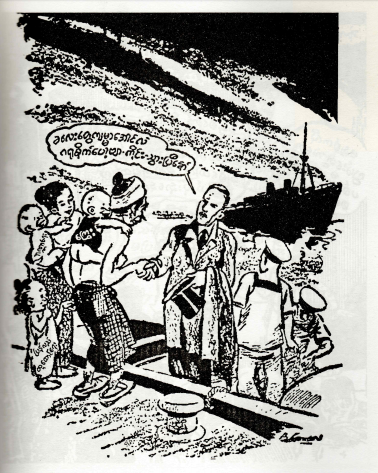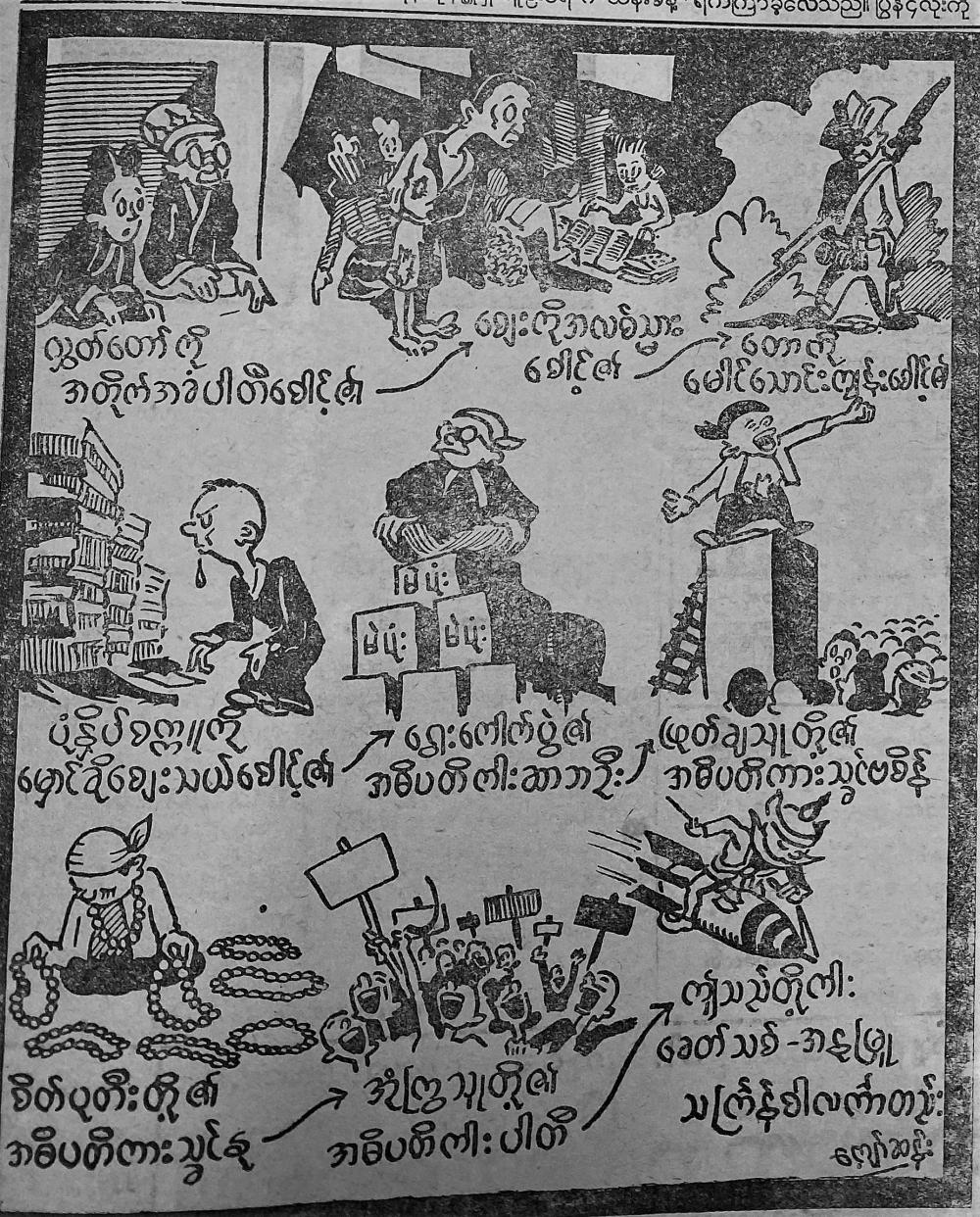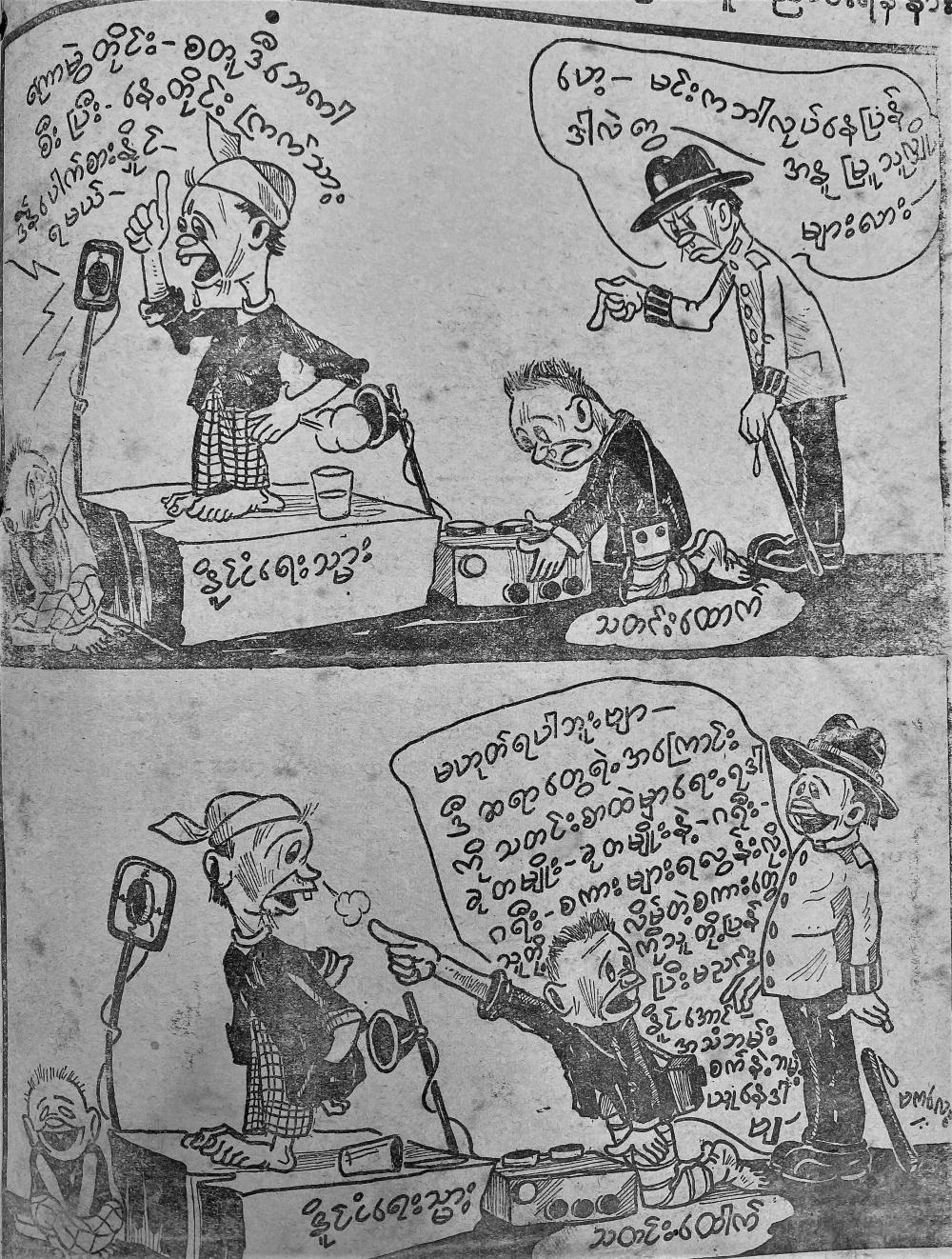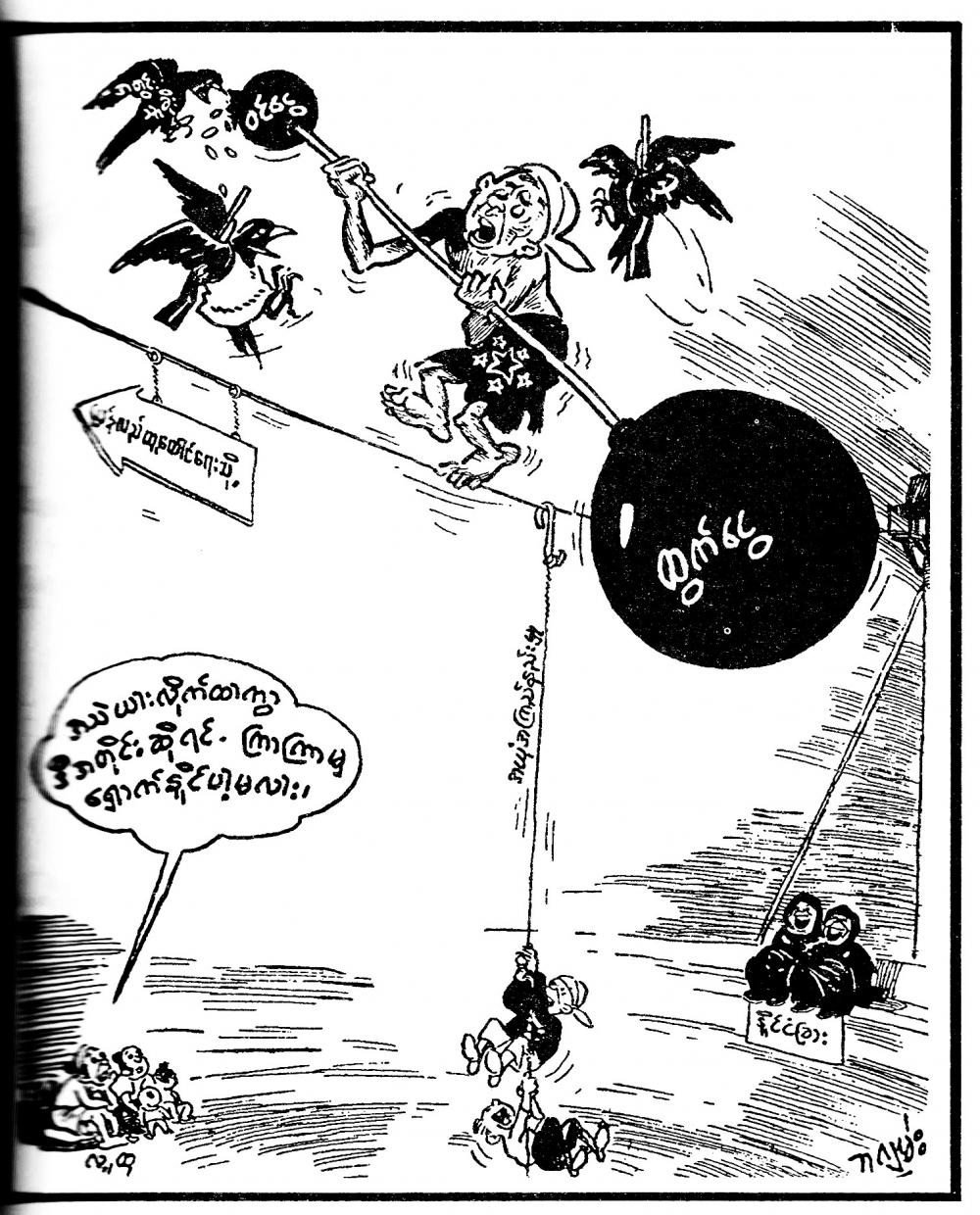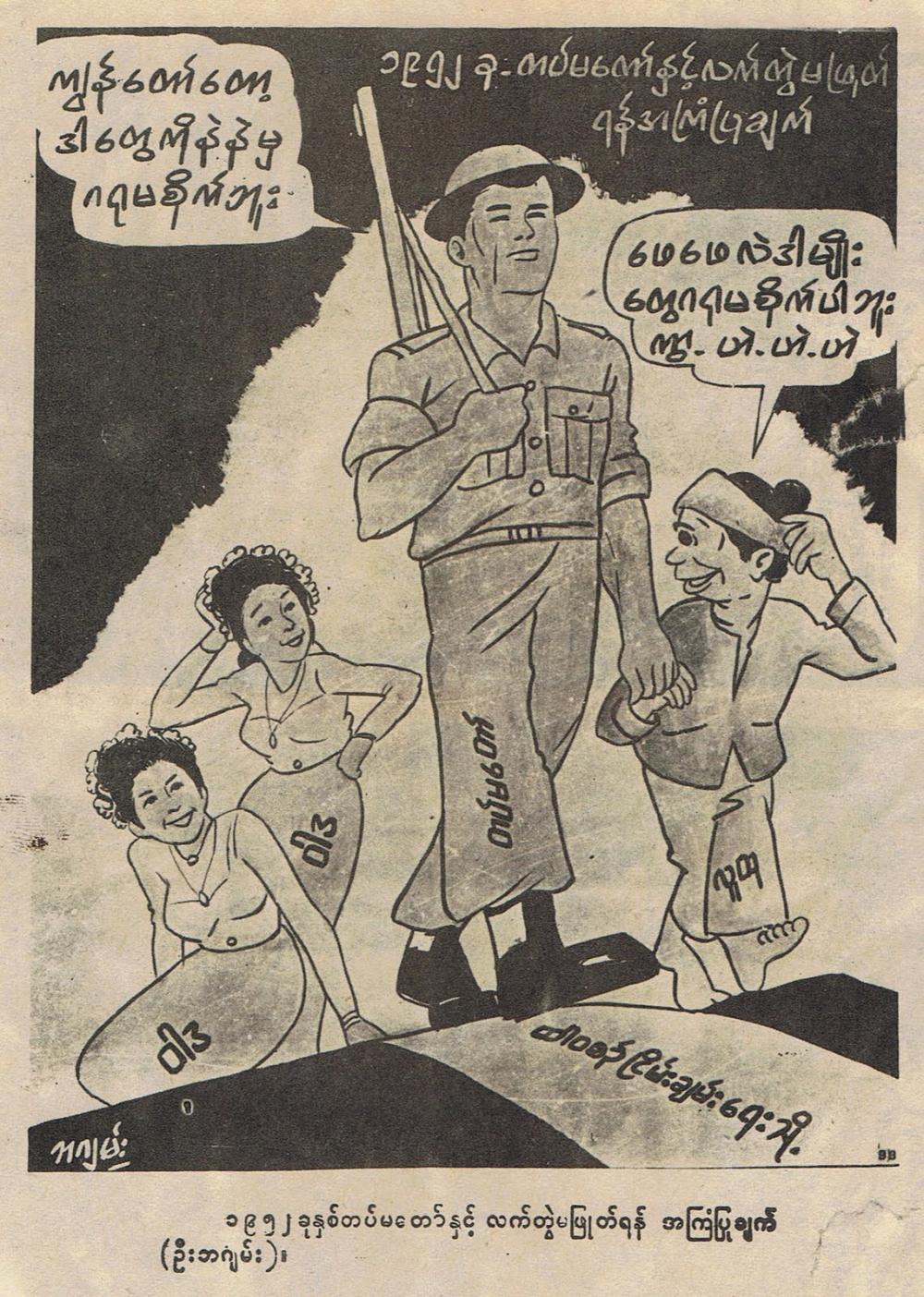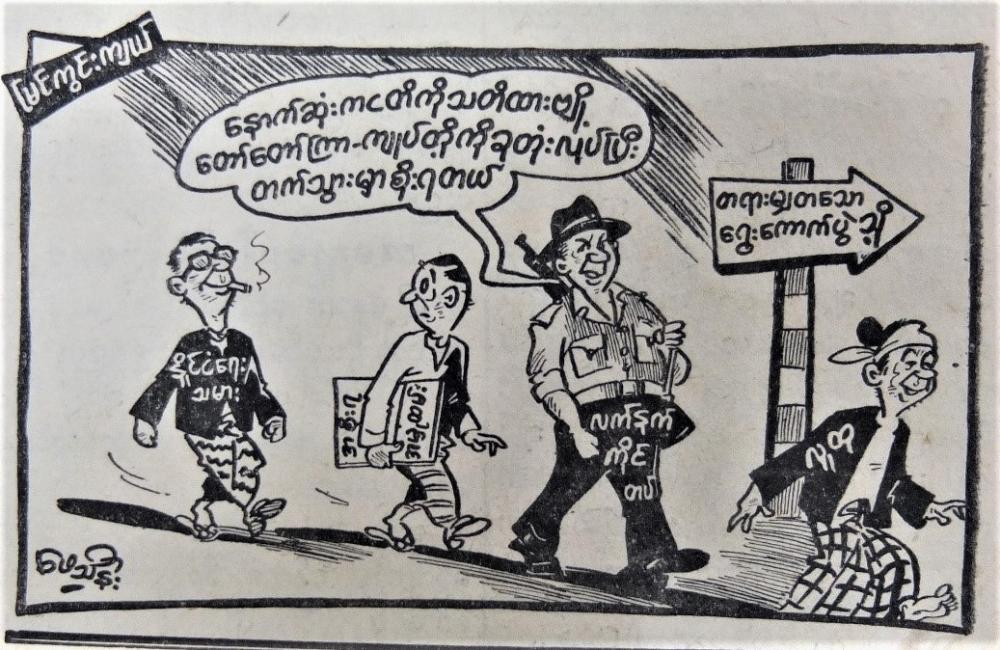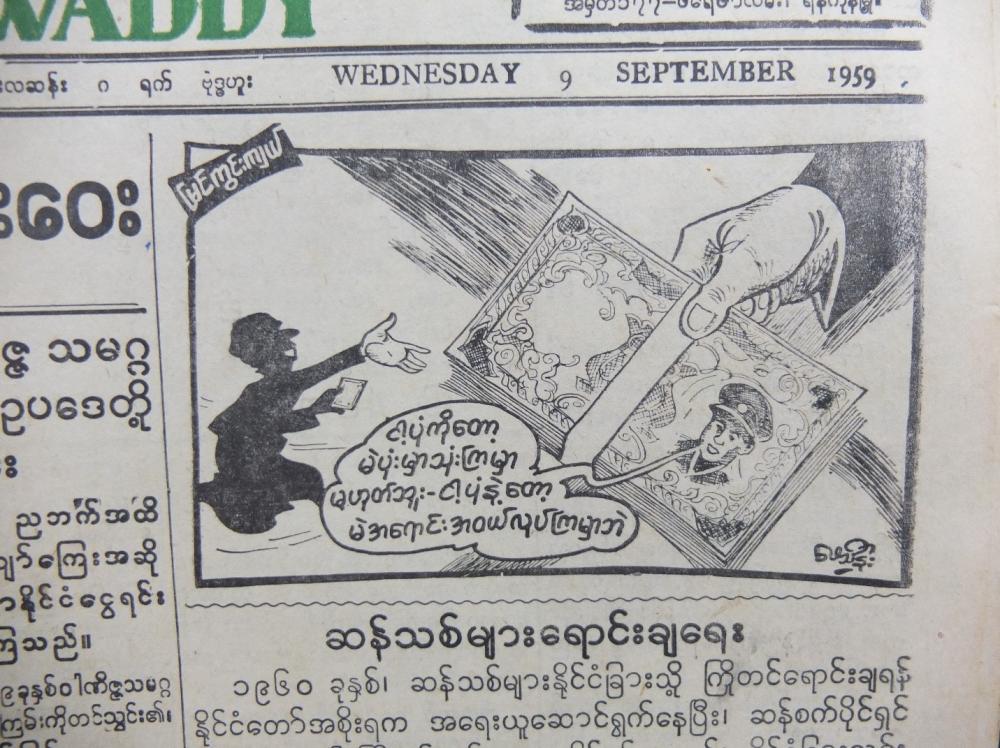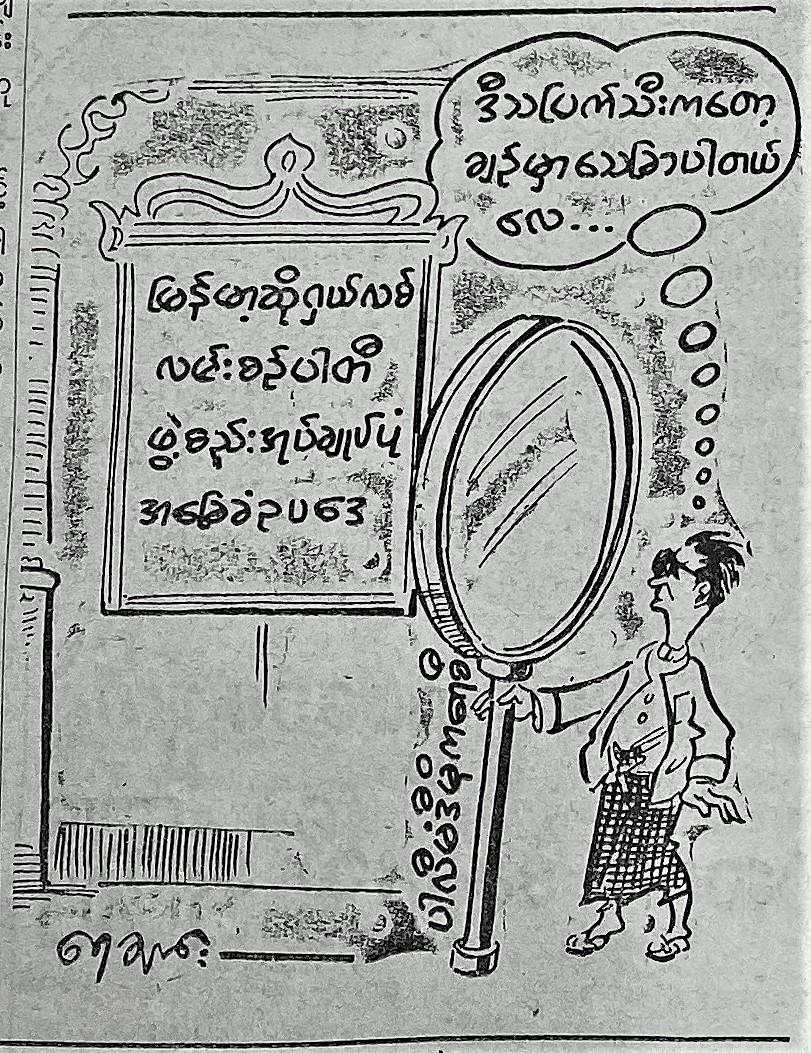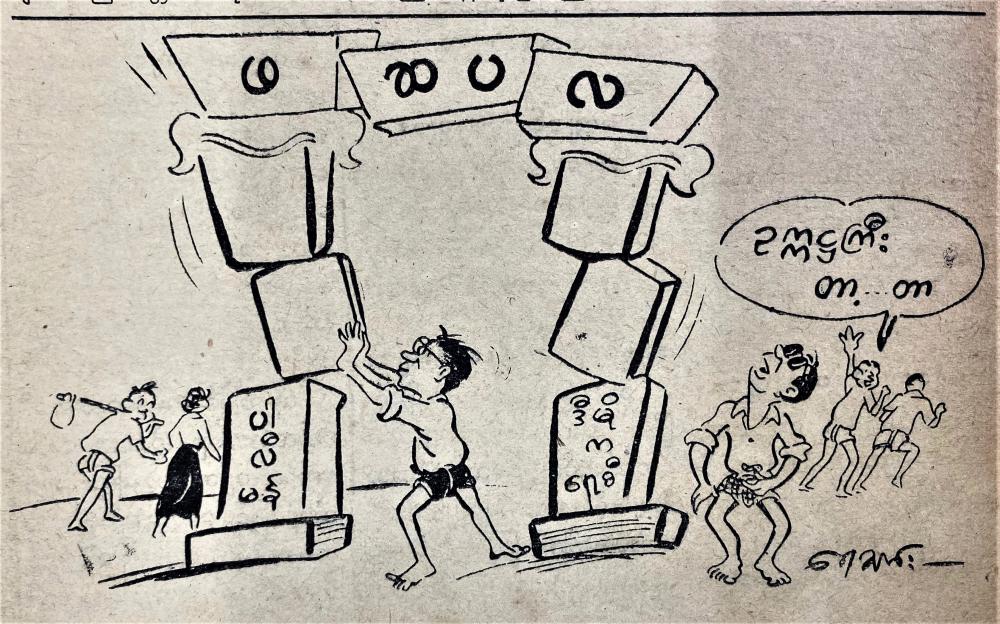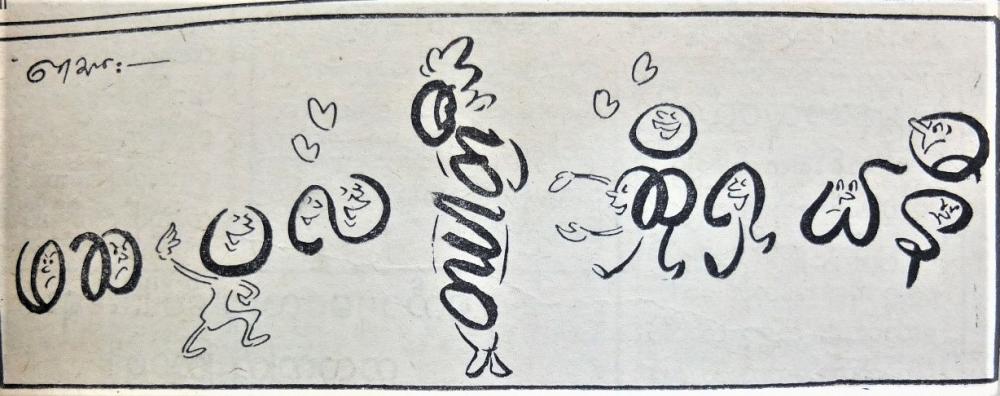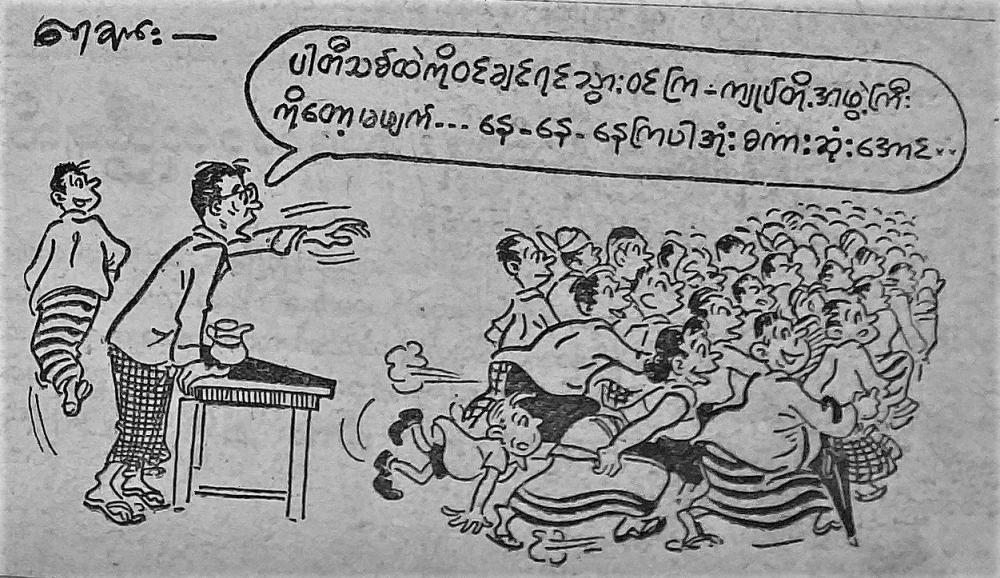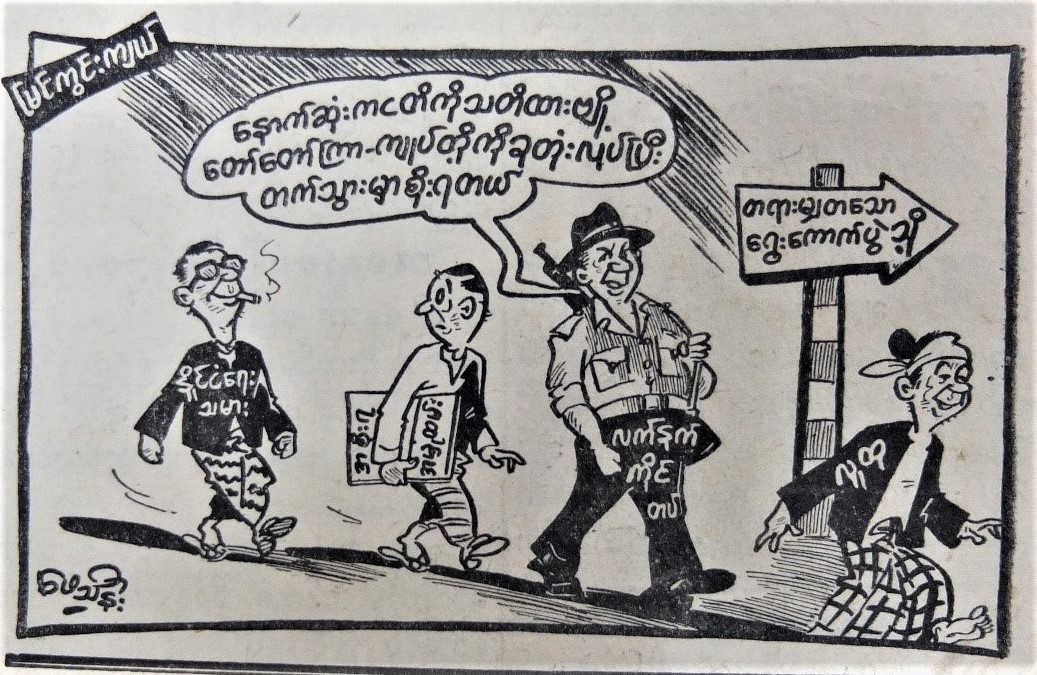
Myanmar, then Burma, entered its newly won independence in 1948 with a liberal society that had socialist roots and progressive ideas.
The people were free from British imperialism, and although the country’s economy was in ruins, Burma in the 1950s had one of the freest presses in Asia, with 30 daily newspapers.
The 1947 Constitution guaranteed “the liberties of though and expression” though this was hampered two years later by the Emergency Provisions Act.
This law criminalized the spreading of fake news and the slandering of civil servants and military officials; it would be widely used to silence dissidents.
Here are 12 cartoons—nine dug out from the Universities' Central Library archives in Yangon—that highlight the political discourse of post-independence Burma until 1962, when Ne Win’s military coup and the enactment of martial law suppressed many prominent cartoonists.
The cartoons are part of an exhibition occurring at the American Centre later this month.
"Myanmar is independent."
The cover of The Rangoon Daily on the day of Burma’s independence commemorating Gen Aung San and his cabinet ministers who were assassinated the previous year by a rival politician.
“Take care of your children, I’m going to get going now.”
The British colonizers bid goodbye to the economically devastated people of Burma in this cartoon by prolific artist Ba Gyan, published between 1949 and 1950. The work was reprinted by publisher by Seikkhu Cho Cho in a collection of Ba Gyan’s work in 2015.
This cartoon in The Rangoon Daily mocks political and economic dilemmas of the time, in 1951.
Politician: “Even if we go poor, you guys will get to eat chicken biryani every day.”
Police officer: “Hey! What are you doing, trying to sabotage him?”
Journalist: “No, I’m sick of getting into trouble every time I publish something about this guy’s speeches. I’m recording this so he can’t lie about it anymore.”
“This is making me nervous, I don’t think he’s going to last very long.”
A man walking a tightrope balances the weight of outgoing costs and income as the public and other countries watch on.
Soldier: “I couldn’t care less about these.”
People: “Daddy doesn’t care about these either, hehehe.”
A well-built Tatmadaw or Myanmar army soldier is accompanied by a man representing the people. The soldier marches on the road to eternal peace, unfazed by ideologies, which are represented as damsels, while the man is distracted by the sight.
“Be wary about the prick in the back, otherwise he’ll use us to move forward.”
Accompanied by representatives of the public and civil servants, a military representative expresses concern that politicians will exploit them ahead of an election.
“You don’t use my face on the ballot boxes, but you use it to buy votes.”
A reprimand from beyond the grave by Gen Aung San, who is depicted in 1959 criticizing Burma’s elections.
“I’m sure this grape is going to be really sour.”
Published four months after Ne Win’s military coup, this cartoon shows a politician looking through a magnifying lens labelled “parliamentary democracy” who describes the constitution of the Burmese Socialist Programme Party as sour grapes.
The cartoon features in the newspaper The Botataung, which was nationalised by the military government in 1964.
“Bye Bye, Chairman.”
The factionalised Anti-Fascist People's Freedom League is clumsily held together by the parliamentary democracy system while the members bid the chairman goodbye in this cartoon published on July 9, 1962.
This cartoon highlights the split of the Anti-Fascist People's Freedom League.

